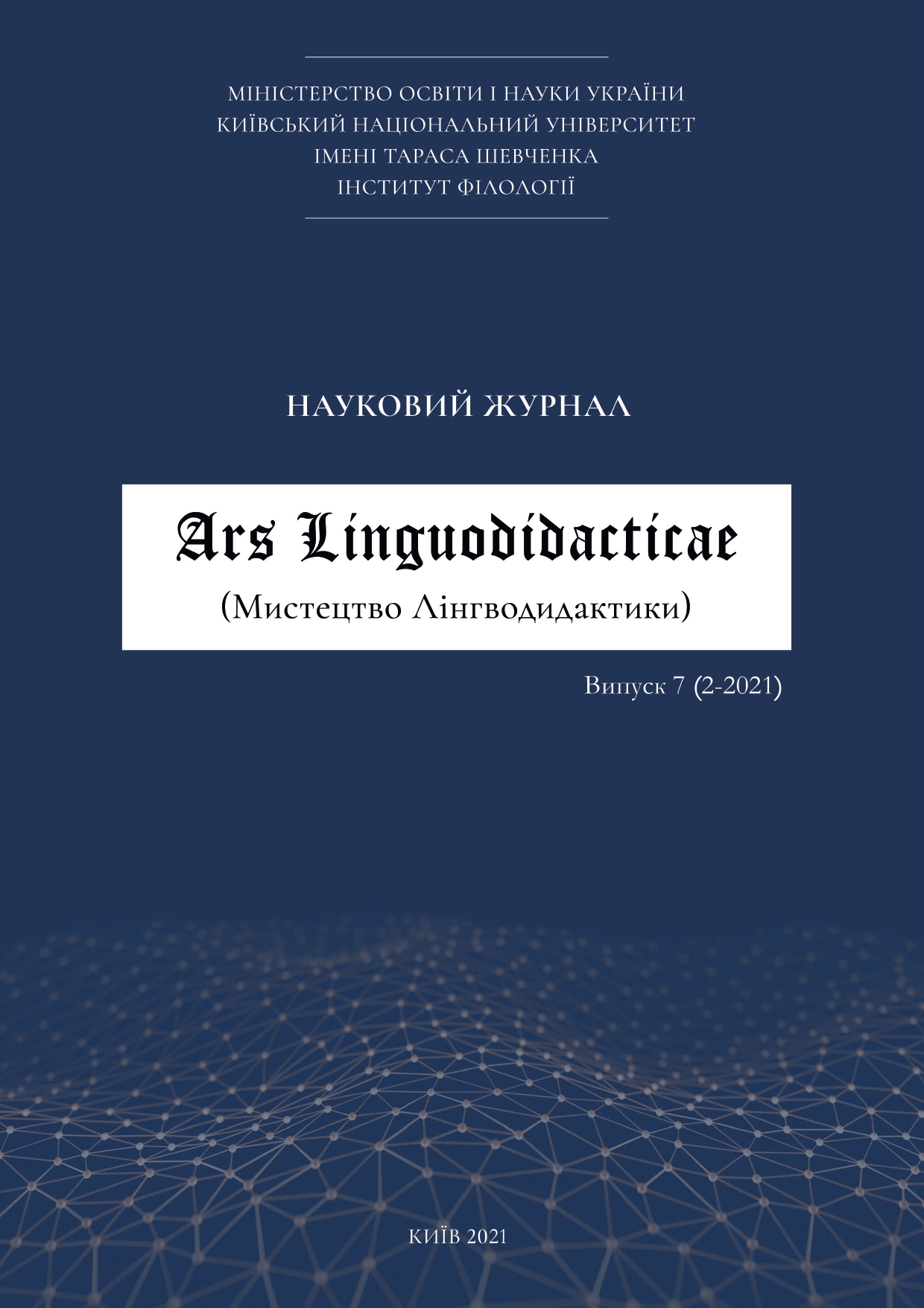ФОРМУВАННЯ СОЦІОКУЛЬТУРНОЇ КОМПЕТЕНТНОСТІ ЗАСОБАМИ КОМІКСІВ НА УРОКАХ УКРАЇНСЬКОЇ МОВИ В СЕРЕДНІЙ ШКОЛІ
DOI:
https://doi.org/10.17721/2663-0303.2021.7.06Анотація
Стаття присвячена дослідженню дидактичного потенціалу використання коміксів для формування соціокультурної компетентності учнів середньої загальноосвітньої школи на уроках української мови. Актуальність проблеми пов’язана з необхідністю реформування шкільної освіти з метою створення умов навчання, спрямованих на розвиток особистості як суб’єкта культури та полікультурної мовної особистості, здатної успішно здійснювати соціальну взаємодію з носіями іншої культури. Використання коміксів як одного з інноваційних методів розглядається як ефективний засіб формування соціокультурної компетентності школярів, оскільки сприяє підвищенню мотивації до навчання, критичного та креативного мислення учнів. Автори статті обґрунтовують дидактичні переваги використання коміксів у навчанні мови та пропонують розробку уроку з української мови для учнів 6-го класу середньої школи.
Ключові слова: уміння критичного мислення, модель персонального зростання, художній твір.
##submission.downloads##
Опубліковано
Як цитувати
Номер
Розділ
Ліцензія

Ця робота ліцензується відповідно до Creative Commons Attribution-ShareAlike 4.0 International License.
Ця робота ліцензується відповідно до Creative Commons Attribution-NonCommercial 4.0 International License.
Політика охорони авторських прав відповідно до умов ліцензії: Creative Commons Attribution-NonCommercial (Атрибуція-Некомерційне використання) 4.0 Міжнародна (CC BY-NC 4.0).
Автори, що публікують свої статті в журналі "Ars Linguodidacticae" (журналі відкритого доступу) зберігають за собою такі права:
- Автори зберігають за собою права на авторство своєї статті та надають журналу "Ars Linguodidacticae" право першої публікації рукопису своєї статті на умовах ліцензії Creative Commons (CC BY-NC 4.0) Attribution License, яка дозволяє іншим особам вільно розповсюджувати опубліковану роботу з обов'язковим посиланням на автора оригінальної роботи та першу оригінальну публікацію в журналі "Ars Linguodidacticae". Інформація про збереження права на авторство надається на титульній сторінці статті.
- Автори зберігають за собою право укладати окремі угоди на неексклюзивне розповсюдження своєї статті у тому вигляді, в якому вона була опублікована в журналі "Ars Linguodidacticae" (наприклад, розміщувати статтю в електронних бібліотеках, архівах та каталогах або публікувати у складі інститутських збірників та монографій), за умови обов'язкового повного посилання на першу оригінальну публікацію в журналі "Ars Linguodidacticae".
- Політика журналу "Ars Linguodidacticae" дає змогу та заохочує розміщення авторами в мережі Інтернет (наприклад в інститутському репозитарії або на персональному сайті) рукопису роботи як до її подання до редакції, так і під час її редакційного опрацювання, оскільки це сприяє продуктивній науковій дискусії та позитивно позначається на оперативності й динаміці цитування статті.
Редакція журналу зберігає за собою видавничі права на:
- зверстані оригінали статей та весь номер журналу;
- оформлення журналу, а також оригінальні ілюстративні та додаткові матеріали;
- репринтні перевидання журналу в друкованому та електронному вигляді.
Політика охорони авторських прав провадиться відповідно до умов ліцензії: Creative Commons Attribution-NonCommercial (Атрибуція-Некомерційне використання) 4.0 Міжнародна (CC BY-NC 4.0).
Для отримання додаткової інформації, будь ласка, прочитайте повний текст Публічної ліцензії CC BY-NC 4.0
Creative Commons Attribution-NonCommercial 4.0 International License.


